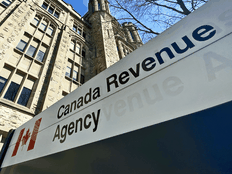Conservatives vow to end Liberal gas-powered vehicle ban
Starting next year, 20% of all new cars sold in Canada must be 100% electric — a figure that increases to 100% by 2035.

Article content
As the federal election campaign enters its home stretch, Canada’s Conservative leader is promising to scrap a contentious Trudeau-era internal combustion engine ban.
Speaking to reporters from a car dealership in Halifax, Pierre Poilievre promised to end the Liberals’ plan to outlaw the sale of gas- and diesel-engined passenger vehicles.
“The Liberals have set a deadline to ban new gas-powered vehicles altogether by 2035, but that ban will be phased in starting next year,” Poilievre said.
“This is not a tomorrow problem, this is a now problem.”
Starting next year, 20% of all new cars sold in Canada must be 100% electric — a figure that increases to 100% by 2035.
Economical hybrid cars, which contain both batteries and a small gasoline engine, will also be outlawed under the new rules.
Doubts over the feasibility of such a measure came to a head late last year when Transport Canada abruptly ended the Incentives for Zero-Emission Vehicles (iZEV) program after it ran out of money.
That was followed by pleas from Canada’s automotive industry to scrap the program, which Canadian Vehicle Manufacturers’ Association (CVMA) president Brian Kingston described as “complete fantasy” earlier this year.
Canadians aren’t thrilled about the plan, either.
In a Leger poll released this week, most Canadians say they’re opposed to the 2035 internal combustion engine ban.
The Tories are also promising to cut the GST on Canadian-made vehicles, as long as U.S. tariffs are in place.
With Canada’s auto sector already facing crippling uncertainty thanks to U.S. President Donald Trump’s trade war, Poilievre said adding that onerous regulation and anti-productive policies puts Canada’s car dealerships under threat.
“Dealerships like this one across Canada have no idea how they’re going to meet these timelines, how they’re going to continue operating and selling vehicles,” Poilievre said.
“Many will have to lay off salespeople and other staff, and many more will have to raise prices dramatically on Canadian consumers — this at a time when our economy is at record-weakness, and our consumers are taxed to the max.”













Postmedia is committed to maintaining a lively but civil forum for discussion. Please keep comments relevant and respectful. Comments may take up to an hour to appear on the site. You will receive an email if there is a reply to your comment, an update to a thread you follow or if a user you follow comments. Visit our Community Guidelines for more information.